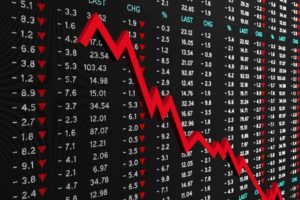 The world is watching with concern the spread of the new coronavirus. The uncertainty is being felt around the globe, and it is unsettling on a human level as well as from the perspective of how markets respond.
The world is watching with concern the spread of the new coronavirus. The uncertainty is being felt around the globe, and it is unsettling on a human level as well as from the perspective of how markets respond.
At Wealth for Women, it is a fundamental principle that markets are designed to handle uncertainty, processing information in real-time as it becomes available. We see this happening when markets decline sharply, as they have recently, as well as when they rise. Such declines can be distressing to any investor, but they are also a demonstration that the market is functioning as we would expect.
Market declines can occur when investors are forced to reassess expectations for the future. The expansion of the outbreak is causing worry among governments, companies, and individuals about the impact on the global economy. Apple announced earlier this month that it expected revenue to take a hit from problems making and selling products in China. Australia’s prime minister has said the virus will likely become a global pandemic, and other officials there warned of a serious blow to the country’s economy. Airlines are preparing for the toll it will take on travel. And these are just a few examples of how the impact of the coronavirus is being assessed.
The market is clearly responding to new information as it becomes known, but the market is pricing in unknowns, too. As risk increases during a time of heightened uncertainty, so do the returns investors demand for bearing that risk, which pushes prices lower. Our investing approach is based on the principle that prices are set to deliver positive future expected returns for holding risky assets.
We can’t tell you when things will turn or by how much, but our expectation is that bearing today’s risk will be compensated with positive expected returns. That’s been a lesson of past health crises, such as the Ebola and swine-flu outbreaks earlier this century, and of market disruptions, such as the global financial crisis of 2008–2009.
Additionally, history has shown no reliable way to identify a market peak or bottom. These beliefs argue against making market moves based on fear or speculation, even as difficult and traumatic events transpire.
It’s very natural to feel unsettled with the large falls we’ve seen recently and not unusual to wonder whether it would be better to withdraw funds into cash to guard against further falls. But we have no way of knowing when the market has hit the bottom and when it will improve. Recovery can happen quickly and without notice.
Day to day movement of the stock market is uncertain. The S&P 500 Index has returned 10% a year over the last 90 years, but there are very few individual years in which it has ever actually returned that amount. In fact, how many of those 90 years do you think the S&P 500 was up more than 20% or down more than 20% for the year? The answer is 40! In other words, almost 50% of the time there have been huge moves away from the average.
It’s totally understandable that you may feel unsettled by the current volatility in the stock market, and wondering whether you should be taking some form of evasive action. However, anyone working with an adviser has probably developed a long-term plan which you can stick with in a variety of situations. Therefore, in this instance, I do not advocate any changes to your portfolio.
If you have any queries and would like to discuss this further, please do let me know at [email protected]






